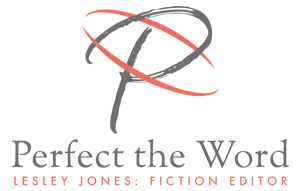Holidays and books – go together like jam and clotted cream. How many books did you take on your holiday this summer – and were they classics or new releases? If new releases, did you ever wonder when the book was actually written? I mean, when the author first sat down and put pen to paper, or finger to keyboard. How long would that have been before the novel was published? Did you know that JK Rowling first had the idea for the Harry Potter books in 1990, and had all seven of the series planned out before the first book was published in 1997?
Think of your novel as if you were making a good bottle of wine. You don’t pick the grapes in the morning and drink the wine with dinner that evening. Or perhaps go back to the pairing above – holidays and books. Some of us love the idea of a surprise venue booked at the last minute. But I think most of us like to plan. I usually book my summer holiday around nine months before the departure date. That way I know I’m getting the best price, with the dates I really want, even down to the room I really want at the resort. The hotel knows when to expect me, and I’ve paid my deposit so both parties are satisfied that the arrangement has been properly made. And when I get there I can just relax. I have to work to afford my holiday and the time off work while I’m there, but I don’t have to create my holiday – I trust that someone else will do that. Compare that to the amount of figurative blood, toil, tears and sweat you have expended in writing your novel – isn’t your brainchild worth being prepared for in advance?
I’ve recently checked out some local house decorators, and I’d be lucky to get a booking this side of Christmas. And it won’t be long before that furniture company that always seems to be having a sale tells us to order our new sofa now in time for Christmas.
But we live in a society where we expect everything immediately – next-day delivery, lastsecond.com or whatever it’s called. Some editors will have postponements due to an author’s illness or unexpected crisis. Sometimes an author just doesn’t feel ready and wants a little more time for self-editing, and that will create a gap in an editor’s schedule – which is when another author can take advantage of that magically appearing availability.
Perhaps ask a few questions:
When is a good time to hire an editor for your novel?
- When you first sit down to write it?
- After your first draft?
- After a beta (or alpha – better term) reading round?
- When you’ve self-edited it the best you can?
What kind of editing do you need? And do you need to talk to your editor to help you decide?
- A developmental edit?
- A manuscript assessment?
- A line edit?
- A copy edit?
When do you expect an editor to be available to edit your novel?
- As soon as you contact them?
- Within a few weeks of contacting them?
- Within a few months of contacting them?
- Six to nine months after contacting them?
The answer to those questions reflect the theme of this year’s SfEP conference which will take place in a couple of weeks – it depends.
My own view, though, is Be Prepared! I know that I and many of my professional colleagues are now booking into next year – so if you want us, let us know!




